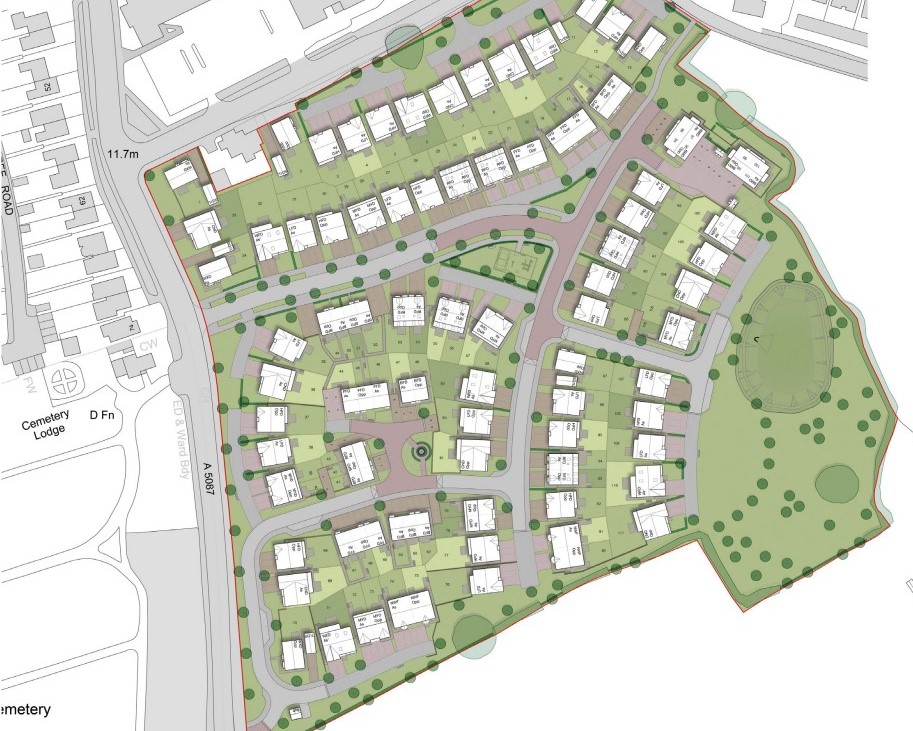Govt to relax nutrient neutrality rules in England
A pipeline of more than 100,000 homes should soon be able to flow, according to the government.
The government is proposing an amendment to the Levelling Up and Regeneration Bill that will remove the requirement for housing projects in protected areas to be ‘nutrient neutral’ – in other words, the development cannot increase the amount of nitrogen or phosphorous in rivers.
- TAKE A DEEP DIVE: How river pollution is putting development plans in purgatory across the North and North Wales
Water companies are the largest source of phosphorous pollution, according to the government – which also states that agricultural practices are to blame for the pollution status of 40% of the country’s waters. The Home Builders Federation has argued that the built environment contributes less than 5% of pollution to rivers.
To combat pollution without stymying development, the government has increased funding for Natural England’s Nutrient Mitigation Scheme by £140m. Now, with a £280m investment, Natural England will create bespoke plans to address pollution issues in specific impacted areas.
Natural England will also increase the inspections it conducts on farms, support farmers in employing innovations to avoid nutrient runoffs, and double down on requirements for sustainable drainage solutions in housing developments.
According to the government’s announcement, homebuilders will also be consulted regarding the best ways to ensure developers “make an appropriate and fair contribution” to nutrient neutrality efforts.
The government also reiterated its push to have water companies invest in their infrastructure ahead of 2030.
The current nutrient neutrality rules are leftover from when the UK was part of the EU. They have impacted housing projects within the borders of 62 local authorities, including Cumberland Council and Westmorland and Furness Council.
When the rule was issued last year, it equated to a building ban impacting 2,500 homes in Cumbria.
That figure came from the Home Builders Federation, which welcomed the government’s announcement.
“Today’s very welcome announcement has the potential to unlock housing delivery across the country, from Cornwall to the Tees Valley, where housebuilding has been blocked despite wide acknowledgement that occupants of new homes are responsible for only a tiny fraction of the wastewater finding its ways into rivers and streams,” said HBF executive chairman Stewart Baseley.
“The industry is eager to play its part in delivering mitigation and protecting our waterways,” he continued. “We look forward to engaging with government on the right way to do so, now that ministers are acting upon the arguments that builders both large and small have been making for so long.”
Nicky Gordon, chief executive of Genesis Homes, described the nutrient neutrality issue as “a major blockade to much-needed housing development across the country”.
He continued: “It has taken a ridiculous amount of time to sort something even though the housebuilding industry has long informed central government right through to local authorities of its wrongful singling out of homebuilders when the contribution of the industry to river pollution is almost zero.
“We now hold our breath for the finer details of the proposed changes to nutrient neutrality but we’re hopeful that some real progress is made so the 100,000 new homes currently on hold across the UK – including around 2,500 in Cumbria – because of this issue can finally start.”
Secretary of state for Levelling Up, Housing, and Communities Michael Gove said: “The way EU rules have been applied has held us back.
“These changes will provide a multi-billion-pound boost for the UK economy and see us build more than 100,000 new homes,” Gove continued.
“Protecting the environment is paramount which is why the measures we’re announcing today will allow us to go further to protect and restore our precious waterways whilst still building the much-needed homes this country needs,” he said.




